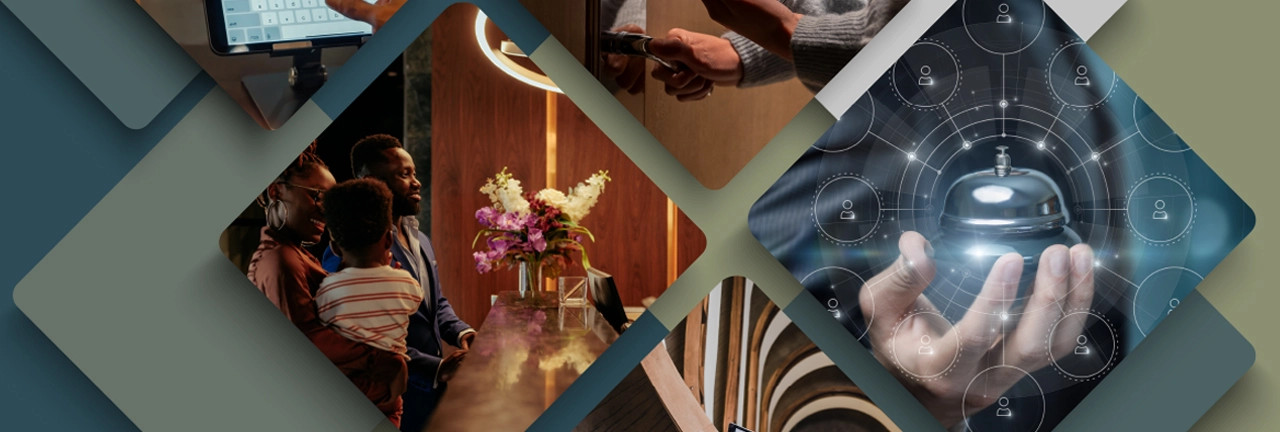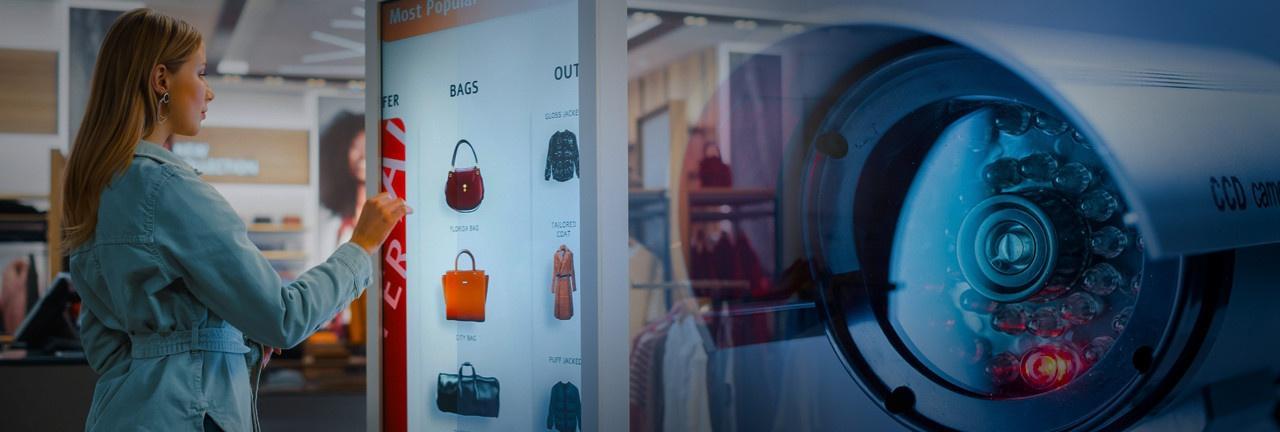We've been hearing about the impending demise of the high street for years now, ever since online shopping and click-and-collect established themselves as part of our day-to-day lives. And yet, while brick-and-mortar retail has certainly been through a great many challenges and upheavals, it doesn't show any sign of going away quite yet. Rather than simply expecting customers to be content with previous generations' shopping experiences, the sector has demonstrated considerable ingenuity by taking full advantage of emerging technologies to deliver the kind of personalisation that would previously have been the sole preserve of online platforms.
Across the Hospitality & Leisure sector, from pubs to five-star hotels - guests' expectations have evolved in ways that would have been impossible to imagine just a decade ago.
Although digital transformation amongst Legal firms has typically been comparatively slow compared to other sectors, the journey has picked up speed over the course of the last decade.
Like many longstanding institutions, Britain's world-renowned pubs are undergoing their own digital transformation journey, utilising leading-edge technologies to offer truly personalised experiences to patrons of all ages and backgrounds - from longstanding regulars visiting for their usual pint, to families looking for a meal, and young professionals working on the go. It's an exciting time for the sector as a whole, but at the same time, the drive for modernisation must not come at the expense of patrons' safety and enjoyment.
Powering seamless communication and collaboration for the UK's leading provider of high-performance sports support services
About the UK Sports Institute
Founded in 2002 under the name 'The English Institute of Sport', the UK Sports Institute (UKSI) provides leading-edge support for athletes competing in major worldwide sporting events, delivered by some of the world's leading practitioners, in close collaboration with coaches and performance directors.
Challenges
Given the nature of its work UKSI employees have always been highly dispersed, working closely with athletes and their teams, both onsite and at a number of regional performance centres. As a result, the organisation was an early adopter of the hybrid working model, designing and developing its ICT infrastructure in order to provide all employees with maximum flexibility in terms of how and where they work.
To this end, they have always worked closely with trusted managed service providers, with key services including LAN, WiFi, and a managed service desk. This culture of constant improvement eventually initiated a full Cloud transformation, for additional levels of control and scalability, and an early move towards Microsoft Teams as the primary platform for cross-site communication and collaboration.
In order to build on these successes, the UKSI made the decision to partner with an MSP who would not only be able to maintain its existing working model, but provide a dedicated team to provide hands-on support and guidance around future opportunities for improvement. To this end, a call for tenders was put out, with an emphasis on potential partners' willingness to delve deep into the UKSI's requirements and build a strong rapport with its teams.
Solution
Throughout a rigorous tender process, Exponential-e's readiness to work closely with the UKSI's own teams, clear understanding of their requirements and long-term business goals, and readiness to deliver truly bespoke solutions based on this quickly made a positive impression. As a result, Exponential-e was selected as the UKSI's new MSP.
A six-month handover period was established, in order to ensure a smooth transition, avoid any disruptions to employee's day-to-day work, and allow the dedicated account team time to establish themselves and get to know the UKSI's own teams, systems, and processes. This included the account team engaging directly with the incumbent supplier and working through the UKSI's comprehensive Operations Manual, in which all established systems and processes were clearly documented, while also minimising any overlap between suppliers and the extra costs that would result.
This clear communication and close collaboration between teams from both organisations ensured a seamless transition process, with Exponential-e able to take on the managed service desk function, providing employees at all levels of the UKSI with a single point of contact for any technical issues. End users reported no discontinuity between the old and news systems, ensuring disruption for all employees, wherever they were located, was avoided.
Since the final handover, the relationship between the UKSI and its dedicated account team at Exponential-e has continued to evolve. This has not been a simple case of maintaining the existing infrastructure, but also drawing on the expertise of Exponential-e's expert consultants and evolving range of professional services to develop the UKSI's internal expertise, drawing on an 'innovation fund' that was established at the outset of the contract.
This included hands-on technical support and consultancy during the change of name from 'The English Institute of Sport' to UKSI, ensuring all necessary updates within the Microsoft ecosystem had been properly executed prior to the designated launch date. Close collaboration between both teams ensured a completely seamless update across all systems, avoiding any unexpected disruptions.
Solution benefits
- A seamless transition process, with zero disruption of established processes or day-to-day operations
- A dedicated account team, providing hands-on support and helping maintain a culture of ongoing improvement
- A single point of contact for all technical issues, in the form of a fully managed service desk
- Access to world-class consultancy and professional services via a dedicated 'innovation fund'
A proven system for developing a world-class digital strategy
In the space of just a few short years, Artificial Intelligence (AI) has gone from being a somewhat niche field, to front and centre in the public consciousness. With the rise of ChatGPT and similar platforms, there is much speculation about where this technology is heading, and what its impact will be on our personal and professional lives. Indeed, organisations across numerous sectors are already exploring the different ways it can be utilised to reduce costs, optimise efficiency, and improve service quality.
"When it comes to digital transformation, the personal touch is often what takes projects from 'good' to 'exceptional'. Plenty of companies can deliver technology, but it's the relationships that really drive innovation in long term."
Philip Button, Regional Business Manager – Enterprise
Even as the end of lockdown approaches, it is clear that hybrid working is here to stay, with organisations utilising remote and office-based working on a flexible basis, in order to combine the advantages of both.
Failure Demand: "Demand caused by failure to do something or do something right for the customer"
Seddon, 2003
When it comes to building brand loyalty, customers increasingly expect the retailers they shop from - whether that's online, in person, or via click-and-collect - to demonstrate tangible efforts to operate in an ethical, sustainable, and environmentally friendly manner in everything they do.
Retailers - be they small local shops, online sellers, or top global brands - generate, transfer, and store more data than ever before, ranging from customer data (both online and in-store, as we have considered in previous articles), to supply chain and asset tracking data. Whether it's shopping online or utilising in-store apps to access the latest savings and special offers, the way customers shop has fundamentally changed forever, with the data they generate online and in person allowing retailers to build up unique personas that drive truly bespoke experiences.
Like many fixtures of our lives, Britain's pubs were heavily impacted by COVID-19, with their familiar patrons unable to come in for a post-work drink, or meet with friends at the weekend. But while it was undoubtedly a difficult period for the industry as a whole, this great British institution did as it has always done, and adapted to suit its patrons' evolving requirements.
The retail landscape has fundamentally changed in recent years, partly driven by the necessities of COVID lockdowns, and partly by ongoing shifts in customer preferences and behaviour. As we have previously explored on this blog, the familiar high street shopping experience is increasingly converging with online and click-and-collect shopping, offering a new breed of data-driven shopping experience.
The Retail sector is more diverse, dynamic, and rapidly changing than any other time in its history. This not only encompasses the way customers make their purchases – with online shopping, click-and-collect, and in-person shopping all converging to offer true, end-to-end experiences – but also the way retailers open and operate new sites. Whether this means trendy pop-up shops, kiosks at other brands' locations, or booths at events, retailers from up-and-coming start-ups to global leaders are no longer relying on fixed high-street locations to welcome their customers and put their wares on display, instead making sure they are present wherever their ideal customers are, and fully prepared to offer a world-class experience that builds brand recognition and loyalty.
With fundamental shifts in consumer behaviour, changing economic conditions, and a rapidly evolving regulatory environment, it's a challenging but exciting time for the UK's retail sector, and technology has a key role to play. In particular, advances in IT and networking solutions are empowering retailers to enhance their operational efficiency, improve the customer experience, and retain their competitive edge in an increasingly online and interconnected world.
There's no doubt that the current economic environment has led to feelings of instability, in both our personal and professional lives. Consumers are feeling the pinch, and with rising inflation and interest rates, they will have no choice but to curtail their spending. The impact on business is similarly far-reaching. Aside from the economic impact of the reduction in spending, there is the very real situation that both employees and customers will be experiencing stress in their personal lives. As a result, many organisations across the public and private sectors are evaluating how to best maintain their service quality under these difficult circumstances.




















